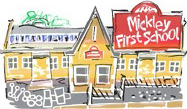Geography Intent
At Ovingham C of E First School, our geography curriculum is designed to develop children’s curiosity and fascination about the world we live in. Children investigate a range of places – both in Britain and across the world – to help develop their locational knowledge and understanding as well as the Earth’s human and physical processes. We are committed to providing our children with opportunities to explore their local area so that they can develop a sense of who they are and their heritage. We believe it is important to provide children with a range of geographical skills and vocabulary so that they can confidently communicate their findings.
Rationale
The purpose of geography in the National Curriculum is to equip pupils with knowledge about diverse places, people, resources and natural and human environments, together with a deep understanding of the Earth’s key physical and human processes. As pupils progress, their growing knowledge about the world should help them to deepen their understanding of the interaction between physical and human processes, and of the formation and use of landscapes and environments. Geographical knowledge, understanding and skills provide the framework and approaches that explain how the Earth’s features at different scales are shaped, interconnected and change over time.
Implementation
Geography is taught through fun and engaging topics linked directly to the National Curriculum. Planning enables pupils to build on their knowledge and skills week by week so that by the end of a topic they have a secure subject knowledge. Geography lessons allow children to develop their knowledge of the world they live in and where possible links are made to foundation subject areas such as art, design and technology, history, music and computing. Pupils are also provided with opportunities to develop their skills in core subjects such as writing information texts about the location of famous rainforests in English, using coordinates and compass points when discussing direction in maths and looking at rocks and soils in science. Geography displays incorporate examples of work and also new words which help develop vocabulary skills and support the development of a language-rich environment.
Impact
Progress in geography is monitored termly to ensure all pupils meet their full potential. Teachers use effective questioning during lessons to check pupils’ understanding of the content and support them to explain how this builds on what they have learnt before.
Geography teaching is detailed in our topic webs.
Click here to view the full National Curriculum Programme of Study that we follow for Geography
History Intent
At Ovingham C of E First School, children will develop an understanding of the history of their local area and community. They will explore historical events in a respectful way and make links to other curriculum subjects. Inspiring, enjoyable, relevant experiences are offered where children develop historical skills, consider the environmental impact and become responsible citizens of the future. We equip pupils with the skills and confidence to ask perceptive questions, think critically, develop a good sense of chronology while developing a sense of perspective and judgement.
Rationale
The purpose of History in the national Curriculum is to help pupils gain knowledge and understanding of Britain’s past and that of the wider world. The curriculum aims to ensure that pupils know and understand the history of the British Isles from the earliest times to the present day and how peoples’ lives have shaped the nation. Other aims include the pupils being able to understand significant aspects of history of the wider world and to understand historical concepts such as continuity and change, cause and consequence, similarities, differences, connections and contrasts.
Implementation
History is taught through fun and engaging topics linked directly to the National Curriculum. Planning enables pupils to build their knowledge and skills week by week so that by the end of a topic they have a secure subject knowledge. History lessons allow children to develop a sense of chronology using timelines and sequencing of events and where possible links are made to foundation subject areas such as art, design and technology, geography, music and computing. Pupils are also provided with opportunities to develop their skills in core subjects such as writing diary entries based on the Titanic, using a Venn Diagram to sort toys from the past / present and looking at different materials when building model houses for the Great fire of London topic. History displays incorporate examples of work and also new words which help develop vocabulary skills and support the development of a language-rich environment.
Impact
Progress in History is monitored termly to ensure all pupils meet their full potential. Teachers use effective questioning during lessons to check pupils’ understanding of the content and support them to explain how this builds on what they have learnt before.
History teaching is detailed in our topic webs.
Click here to view the full National Curriculum Programme of Study that we follow for History.
History Long Term Plan
Geography Long Term Plan
Humanities Long Term Plan

